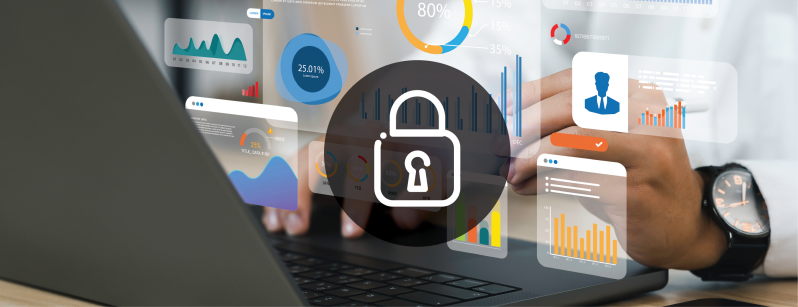In today’s digital age, data has emerged as the lifeblood of successful businesses. From massive football stadiums to intimate black box theaters, in order to be competitive you need to know your audience. By partnering with AudienceView, performing arts organizations can take charge of customer data and unlock a host of invaluable benefits. Let’s delve into what your organization stands to lose if you don’t own your own data, and why becoming an AudienceView client is the solution.

Control over Customer Relationships
We know that cultivating strong relationships with audiences is vital to success. Without owning your customer data, you lose the ability to personalize communications, tailor marketing efforts, and deliver exceptional experiences. AudienceView empowers organizations with complete control, enabling them to foster deeper connections and nurture long-term loyalty.
By leveraging insights from your customer data, you can send customized messages, exclusive offers, and personalized recommendations to your frequent ticket buyers. This level of personalization makes them feel valued and understood, fostering a stronger connection and increasing their likelihood of purchasing tickets for upcoming events.
Read how the Falany Arts Center fosters patron relations here.
Continued Relevance
In a highly competitive landscape, capturing and retaining the attention of audiences is a top priority for everyone. AudienceView’s consumer brands, TheaterMania and WhatsOnStage, serve as hubs of entertainment news and reviews, thus attracting interested audiences and funneling them directly to point of purchase.
It is crucial to understand the needs and preferences of your frequent ticket buyers in order to deliver compelling experiences that resonate with them. This is where owning your own data becomes invaluable.
By analyzing the data of your frequent ticket buyers, which includes quantitative behavioral data, you can identify patterns and trends related to their preferences. Additionally, AudienceView offers the capability for clients to create custom checkout questions shown to all consumers purchasing tickets to a specific series. This feature allows you to gather qualitative feedback and further enhance your understanding of your audience. Armed with this comprehensive information, you can curate a season lineup that not only aligns with their preferences but also incorporates their valuable feedback. For example, you can schedule more shows on weekends based on attendance patterns or feature specific artists that resonate with your frequent attendees’ preferences. The combination of quantitative and qualitative data through data ownership empowers you to make informed decisions that significantly increase the likelihood of attracting and retaining your core audience.

Data Security and Privacy
As data privacy concerns continue to heighten, safeguarding customer information is paramount. When you don’t own their customer data, you relinquish control of security. This loss exposes everyone to significant risks such as breaches, unauthorized access, and compromised trust – regardless of who is responsible. AudienceView’s robust data security protocols ensure that sensitive information remains protected, instilling confidence in both organizations and audiences.
Click here to read up on AudienceView cybersecurity.
Enhanced Analytics and Insights
AudienceView provides performing arts organizations with robust analytics tools that enable you to dig deep into your data and extract meaningful insights. Through data analysis, you can uncover trends, patterns, and correlations that would otherwise remain hidden. These insights go beyond demographics and offer a comprehensive understanding of your audiences’ behaviors and preferences.
Real-time insights in our visualized Analytics Dashboard allow you to set sales goals, measure current achievement, and even compare series and event performance in real-time. Deeper analysis is done effortlessly in our Reporting portal, allowing you to understand attendance and donation history by patron to then curate specific offers or messages to cohorts you build. Armed with AudienceView Professional, you’ll always have the actionable insights you need at your fingertips and be able to show your patrons that your relationship goes beyond transactional.
These insights pave the way for improved strategic planning and better allocation of resources. For instance, if analytics reveal a surge in ticket sales during a particular season or for a specific genre, you can allocate resources such as marketing budgets and staff accordingly. This enables you to optimize your resources, minimize costs, and maximize revenue generation.
Long-Term Strategy Development
Successful organizations are built on robust, forward-thinking strategies. Without ownership of customer data, performing arts organizations can struggle to develop comprehensive plans that cater to evolving audience needs. AudienceView empowers organizations to develop long-term strategies by providing them with a comprehensive understanding of their customers. This insight enables organizations to adapt, innovate, and deliver exceptional experiences that resonate with audiences.
The significance of data ownership for all live event organizations cannot be emphasized enough. By becoming an AudienceView client, you can take a giant leap toward controlling your destiny in a highly competitive landscape. The benefits are immense, from strengthening customer relationships to gaining a competitive edge, securing data privacy, unlocking valuable insights, and exploring new revenue streams. Embrace the power of data ownership with AudienceView, and let your organization reach new heights in the performing arts ticketing world.
